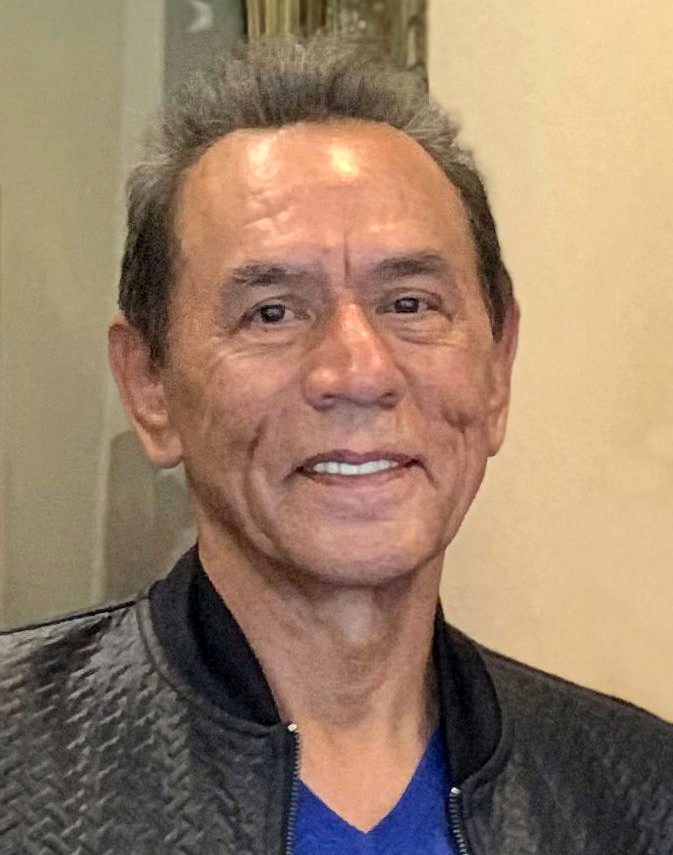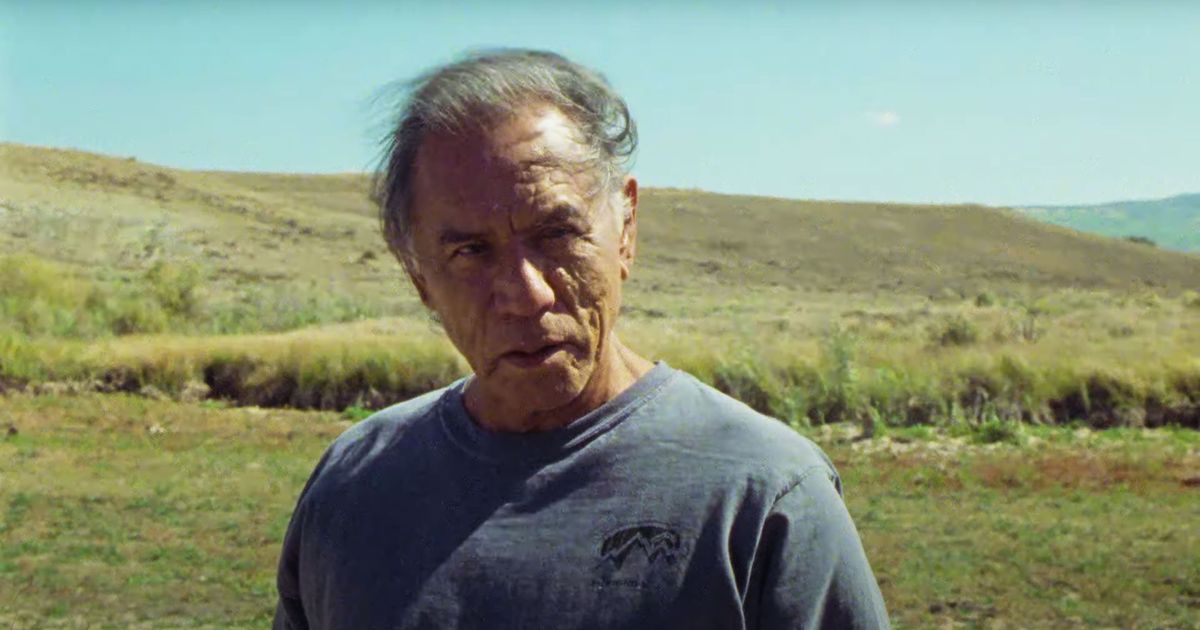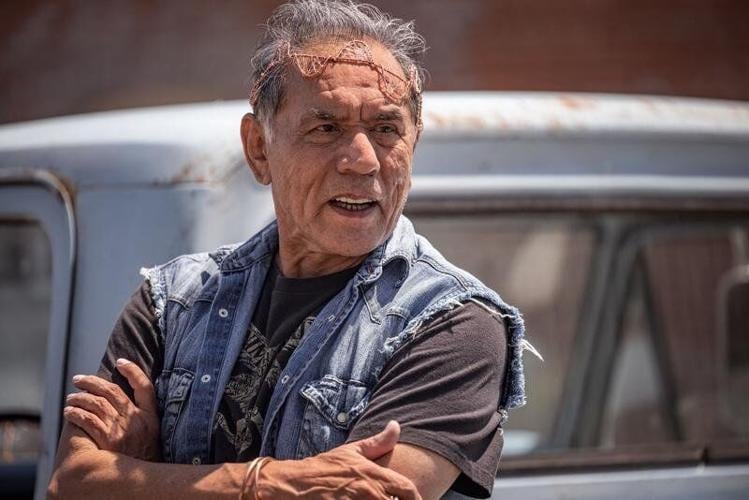Wes Studi
Wes Studi

Wesley Studi, a member of the Cherokee Nation, is a highly acclaimed Native American actor and film producer. Throughout his career, Studi has received widespread critical acclaim and numerous awards, particularly for his authentic and compelling portrayals of Native American characters in film.
In 2019, he made history by receiving an Academy Honorary Award, becoming the first Native American and Indigenous person from North America to be honored by the Academy. This recognition underscored his significant contributions to the film industry and his groundbreaking representation of Native American culture on screen.
Studi's impressive filmography includes roles in several Academy Award-winning and nominated films, such as his memorable performances in "Dances with Wolves" (1990), "The Last of the Mohicans" (1992), "Geronimo: An American Legend" (1993), and "The New World" (2005). Additionally, he portrayed Sagat in the film adaptation of "Street Fighter" (1994).
Beyond his notable film roles, Studi has appeared in a diverse range of movies, including "Hostiles," "Heat," "Mystery Men," "Avatar," and "A Million Ways to Die in the West." He has also made appearances in television series such as "Penny Dreadful."
In December 2020, The New York Times recognized Studi's immense talent and impact by ranking him #19 on its list of the "25 Greatest Actors of the 21st Century (So Far)." This acknowledgment solidifies his status as one of the most respected and influential actors of his generation.
Wes Studi was born into a Cherokee family in Nofire Hollow, Oklahoma, a rural area in Cherokee County named after his mother's family. His parents were Maggie Studie, a housekeeper, and Andy Studie, a ranch hand. Growing up, Studi spoke only Cherokee at home until he began attending elementary school.
For high school, Studi attended Chilocco Indian Agricultural School and graduated in 1964 with a vocational major in dry cleaning. It was during his time at Chilocco that he enlisted in the Oklahoma National Guard at the age of 17. He underwent basic combat training and advanced individual training at Fort Polk, Louisiana (now Fort Johnson), before volunteering for active service in Vietnam.
Studi served with A Company of the 3rd Battalion 39th Infantry, 9th Infantry Division, during his 12-month deployment in Vietnam. Upon his discharge from the military, Studi became politically involved in Native American activism, participating in events such as the Wounded Knee Incident at Pine Ridge Reservation in 1973.
It was after returning from his service in Vietnam that Studi began to explore acting. He attended Tulsa Community College, where he became involved in theater and had a role in the play "The Royal Hunt of the Sun" for the American Indian Theater Company. This marked the beginning of his acting career, which would eventually lead him to become one of the most respected Native American actors in Hollywood.
Wes Studi's career has been marked by his powerful portrayals of Native American characters in film and television. He gained recognition for his roles as ruthless Native American warriors, such as a Pawnee in "Dances with Wolves" (1990) and the Huron Magua in "The Last of the Mohicans" (1992).
In addition to his film work, Studi has appeared in television productions, including the TNT film "The Broken Chain" and the PBS movie series based on Tony Hillerman's novels. He also portrayed historical figures such as Major Ridge in "Trail of Tears" and chief Opechancanough in "The New World."
One of Studi's most notable roles came in James Cameron's "Avatar" (2009), where he played the Cheyenne chief Yellow Hawk in the 2017 film "Hostiles."
Studi's contributions to the film industry were recognized when he received an Academy Honorary Award in 2019, making him the first Native American actor to receive an Oscar specifically for acting. At the 90th Academy Awards, he delivered part of his speech in the Cherokee language.
In December 2020, The New York Times ranked Studi #19 in its list of the "25 Greatest Actors of the 21st Century (So Far)," praising his ability to bring depth and complexity to his characters.
In terms of his personal life, Studi has not been extensively covered in public media, and information about his personal life, including his family and upbringing, is not widely available.
After transitioning from ranching to acting, Wes Studi married Maura Dhu and settled with their family on a farm near Santa Fe, New Mexico, in the early 1990s. Maura Dhu Studi is the only child of actor Jack Albertson. Together, Wes and Maura Dhu Studi have a son named Kholan. They also share a passion for music and perform together in the band Firecat of Discord.
In addition to his acting career, Studi remains involved in efforts to preserve and promote Indigenous languages. He has served as the honorary chair of the national endowment campaign of the Indigenous Language Institute in Santa Fe.
Studi's political views became public when he endorsed Senator Bernie Sanders for President in the 2016 U.S. presidential election, indicating his engagement with social and political issues beyond his acting career.

References
- Galbraith, Jane (December 14, 1993). "Q&a with Wes Studi: 'I Came Into the Business at the Right Time'". Los Angeles Times. Retrieved November 30, 2010.
- a b c d Carter, Kevin (December 22, 1993). "Actor Champions Indian Heritage". The Philadelphia Inquirer. Orlando Sentinel. Archived from the original on September 15, 2012. Retrieved December 12, 2010.
- a b c Hammond, Pete (June 3, 2019). "Oscars: Governors Awards To Geena Davis, David Lynch, Wes Studi, Lina Wertmuller". Deadline Hollywood.
- a b Dargis, Manohla; Scott, A.O. (November 25, 2020). "The 25 greatest actors of the 21st century (so far)". The New York Times. Retrieved December 9, 2020.
- a b c d e f "Wes Studi". Native Networks. Smithsonian National Museum of the American Indian. Archived from the original on July 23, 2009. Retrieved February 7, 2008.
- a b c Beale, Lewis (December 16, 1993). "Wes ('Geronimo') Studi Wary of Political Correctness". New York Daily News. Chicago Tribune. Retrieved December 12, 2010.
- ^ "The Chilocco Annual, 1964" (PDF). National Archives and Records Administration.




































